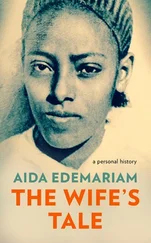6 The Governor of Mysore
1799
‘I must say that I was the fit person to be selected.’
GENERAL BAIRD expected to be placed in command of the captured city in which much treasure had to be guarded and a terrified populace reassured. But he was not considered a suitable officer for the task. ‘He had no talent, no tact,’ Colonel Wellesley said later, while acknowledging his bravery and the regard in which he was held by his men. ‘He had strong prejudices against the natives, and was peculiarly disqualified from his manner, habits and temper for the management of them. Having been Tippoo’s prisoner for years, he had a strong feeling of the bad usage which he had received during his captivity.’ ‘I must say,’ Wellesley added, ‘that I was the fit person to be selected. I had commanded the Nizam’s army during the campaign, and had given universal satisfaction. I was liked by the natives.’ 1General Harris, who had not forgiven Baird for his ‘strong remonstrance’ over the command of the Nizam of Hyderabad’s troops, accepted that this was the case.
So, while Baird and his staff were having breakfast in the Sultan’s palace, news that he was not to be left in command at Seringapatam was broken to him by the Colonel himself who displayed on the occasion just that want of tact of which he accused the bluff Scotsman.
‘General Baird,’ he said to him, ‘I am appointed to the command of Seringapatam, and here is the order of General Harris.’
‘Come gentlemen,’ replied Baird, rising angrily from the table and ignoring Colonel Wellesley, ‘we have no longer any business here.’
‘Oh, pray,’ said the Colonel. ‘Finish your breakfast.’ 2
Baird stormed from the palace and sat down to write a furious letter to General Harris which elicited another reprimand for once more displaying ‘a total want of discretion and respect’. Baird was told to go back to Madras. He stormed out of Seringapatam; but Colonel Wellesley had not yet seen the last of him. 3
As it happened it was just as well that Wellesley not Baird was appointed to command in Seringapatam; for the situation demanded talents and insights that the brave, blunt Scotsman did not possess. At first there was much looting and frantic selling of treasures and gold bars stolen from the late Sultan’s palace before order was restored by the hanging of four men and the flogging of others. Even then, the Colonel thought it would be best if most troops were withdrawn from the town since their presence, and their insatiable taste for plunder, occasioned ‘great terror and confusion among the inhabitants’, tending not only to obstruct the ‘settlement of the country’ but also to destroy the confidence which, he was pleased to say, the people reposed in him.
He had no particular affection for the Indian peoples in general. Indeed, not long after his arrival in Calcutta he had decided that the climate and the natives combined to make India a ‘miserable country to live in’, and he came to the conclusion that a man might well deserve some of the wealth that was brought home as a reward ‘for having spent his life here’. 4The natives were ‘the most mischievous, deceitful race of people [he had] ever seen or read of. ‘I have not yet met with a Hindoo who had one good quality,’ he added, ‘and the Mussulmans are worse than they are. Their meekness and mildness do not exist.’ 5When he was offered two half-caste officers for the 33rd, he replied that they might well be ‘as good as others’, but he had been told that they were ‘as black as my hat’ and he declined to have them. 6And when he heard that the Resident of Hyderabad was openly living with an Indian princess he delivered himself of the outraged opinion that it was ‘a disgrace to the British name and nation’. Yet he was well aware how unwise it would be to offend against Indian customs and susceptibilities, and was determined not to tolerate in Mysore any of the ‘dirty things’ which he had been told, soon after his arrival in India, were ‘done in some of the commands’. 7On being informed that the Commander-in-Chief had issued an order for a search of the Sultan’s zenana for hidden treasure, he strongly disapproved of it and, in carrying out his instructions, took ‘every precaution to render the search as decent and as little injurious to the feelings of the ladies as possible’.* In the same way, when the Abbé Dubois, who was making a vain attempt to convert Hindus to Roman Catholicism under the auspices of the Missions Etrangères, asked for the return of two hundred Christian women from the zenana, the Colonel, having satisfied himself that they were not ill-treated there, refused the request on the grounds that it was ‘not proper that anything should be done which can disgrace [the East India Company] in the eyes of the Indian world, or which can in the most remote degree cast a shade upon the dead, or violate the feelings of those who are alive’. 8
Throughout his administration in Mysore he displayed this concern for Indian feelings. He asked the headquarters in Madras for a chaplain for the British garrison; but the people of Seringapatam were to be left free to practise their religion in their own way, and to be governed by their own laws in separate Muslim and Hindu courts.
While the tenor of Indian life in Seringapatam was allowed to continue undisturbed, there was much for the British Governor to do. There were the Sultan’s tigers to care for; there was the reconstruction of buildings damaged during the siege and assault; there was the surrounding country to pacify; there were forts to inspect, punitive expeditions to control and punishments to ameliorate. There was advice to be given on the partition of the conquered state of Mysore and on the vexed question of the Marāthās’ frontier: ‘I recommend it to you not to put the Company upon the Mahratta frontier,’ he wrote, showing how well he had studied his texts on Indian affairs. ‘It is impossible to expect to alter the nature of the Mahrattas; they will plunder their neighbours, be they ever so powerful … It will be better to put one of the powers in dependence upon the Company on the frontier, who, if plundered, are accustomed to it, know how to bear it and retaliate, which we do not.’ 9
The Colonel had personal problems, too. It was an expensive business being Governor. To be sure, he had his share of prize money which amounted to £4,000, a very welcome sum if hardly to be compared with General Harris’s £150,000. But his expenses were heavy, and he thought that people probably did not get quite as rich in India as was imagined in England. Indeed, he began to believe that he was ruined – certainly he was not yet able to pay off all his debts – and he enquired about the prospects of other more profitable appointments. 10His brother, the Governor-General, offered him the opportunity of commanding an expedition against the Dutch in Java, where he would be sure to get more prize-money, if he could ‘safely be spared from Mysore’. But he did not think he could be spared from Mysore. Some of his troops were in the field; and who, after all, could replace him? British generals were, for the most part as he had so often said, ‘so confoundedly inefficient’. Besides, he was conscious that in Seringapatam he was rendering a ‘service to the public’; and that service was not yet completed. 11
Moreover, there was trouble to the north of Mysore where the warlord Dhoondiah Waugh, soi-distant ‘King of the Two Worlds’, was threatening the peace by assembling an army of warriors in the territory of the Marathas. In the middle of 1800, Colonel Wellesley marched out of Seringapatam with a large force to deal with him. He proved an elusive quarry. Rivers were crossed, forts stormed, forests encountered (though not entered until reconnoitred). But nearly four months had passed before Dhoondiah Waugh was brought to bay, and forced to face his pursuers who were able at last to mount an attack in which Colonel Wellesley, for the first and last time in his life, led a cavalry charge. 12
Читать дальше











